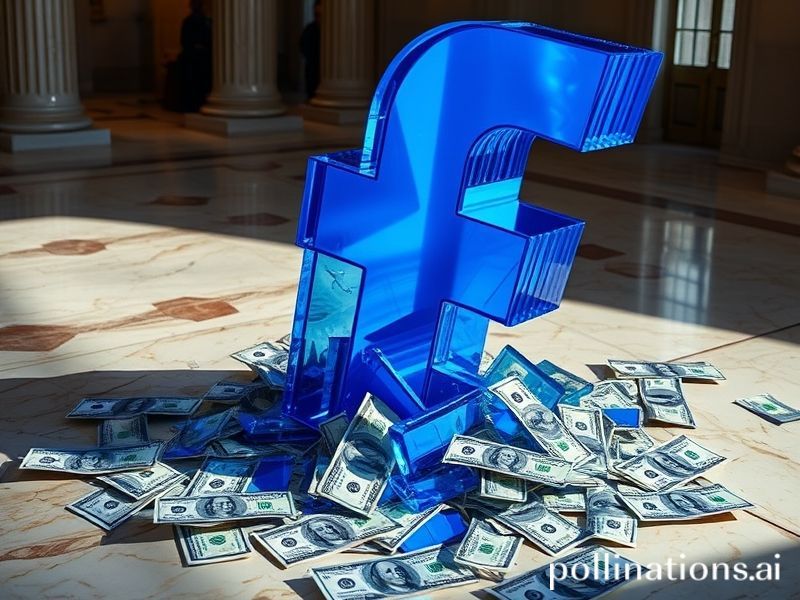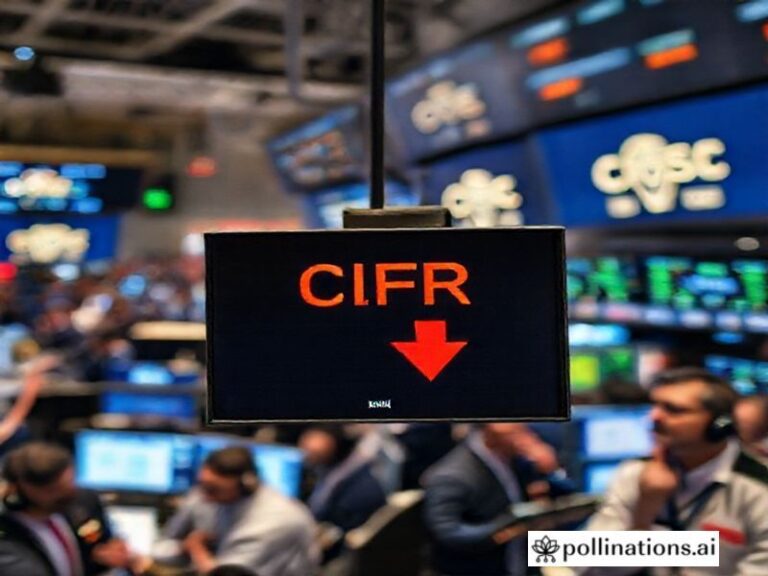$725 Million Facebook Privacy Settlement: Global Schadenfreude and the Going Rate for a Soul
Facebook to Pay $725 Million to Settle a Privacy Suit, Proving Once Again That a Deal with the Devil Is Cheaper Than Therapy
By Hugo van der Loon, International Correspondent
When news broke that Meta—the artist formerly known as Facebook—will fork over $725 million to settle the long-running Cambridge Analytica privacy debacle, global reaction ranged from triumphant fist-pumps in Brussels to resigned shrugs in Lagos. The sum, roughly 0.7 % of Meta’s 2023 revenue, is what Mark Zuckerberg spends annually on artisanal olive oil and algorithmic guilt. Still, the payout is being hailed as “historic,” which is PR-speak for “the largest privacy settlement in history until the next one.”
From the glass towers of Singapore to the favelas of Rio, the settlement is being parsed like holy scripture by privacy activists, data brokers, and bored teenagers alike. In the EU, where GDPR once threatened to turn Big Tech into artisanal jam makers, officials toasted the news with lukewarm prosecco and muttered about “precedent.” Meanwhile, across the Atlantic, U.S. regulators patted themselves on the back for squeezing blood from a stone—if the stone were, in fact, a money-printing hydra with lobbyists.
The case itself is quaint by 2024 standards: back in 2014, a quiz app harvested 87 million profiles and funneled them to Cambridge Analytica, a British firm that weaponized baby photos and “Which Kardashian Are You?” results into political plutonium. The fallout helped elect presidents, break unions, and convince your aunt that 5G towers cause halitosis. Now, seven years and several democratic hiccups later, affected users stand to receive checks of up to $30—just enough for a therapy latte or half a cinema ticket, depending on inflation.
But the global ripple effects are juicier than the payout. In India, the settlement is being watched like a Netflix limited series, with local activists asking why WhatsApp leaks never earn similar mea culpas. In Nigeria, where Facebook’s Free Basics once promised “the internet” but delivered, essentially, Facebook, civil-society groups are translating the fine print into pidgin and wondering if “up to $30” includes transfer fees. In Myanmar, where the platform helped incubate genocide, the math looks darker: $725 million divided by 25,000 documented deaths equals $29,000 per soul, or roughly one-tenth of a Super Bowl ad.
Autocrats, naturally, are taking notes. The Kremlin reportedly calculated that it could destabilize three Baltic elections for the price of a single Meta parking fine. Beijing, ever the pragmatist, simply banned the platform and built its own surveillance paradise at half the cost. Even the Taliban—late to the social-media game—are rumored to be shopping for data-mining startups, reasoning that if you can’t beat the algorithm, you might as well franchise it.
Financial markets shrugged. Meta’s stock dipped 0.3 %, then rebounded after analysts praised the firm’s “litigation discipline”—a charming euphemism for “paying hush money with stock options.” In Davos, venture capitalists toasted the settlement as proof that reputational risk is just another line item between gluten-free canapés and carbon offsets. One overheard quip: “At least when Big Tobacco paid up, you got a cool skull-and-crossbones; with Big Tech, you get a redesigned privacy dashboard nobody clicks.”
Of course, the real winners are the lawyers, who will pocket roughly $181 million in fees—enough to buy every named plaintiff a yacht and still fund a Georgetown think tank on “digital ethics.” The rest of us get emailed claim forms that expire in 30 days and a warm feeling that somewhere, a hoodie-clad billionaire is mildly inconvenienced.
In the end, the settlement is less about justice than about the going rate for absolution in the attention economy. It teaches the world that if you commodify human intimacy at scale, the market-clearing price is about eight bucks a soul—slightly less if you account for currency fluctuations. Meanwhile, 3.05 billion monthly active users log back in, swipe, like, and scroll, comforted by the knowledge that somewhere in a Menlo Park war room, the next scandal is already being focus-grouped.
Conclusion? Privacy is dead; long live the rebate.







